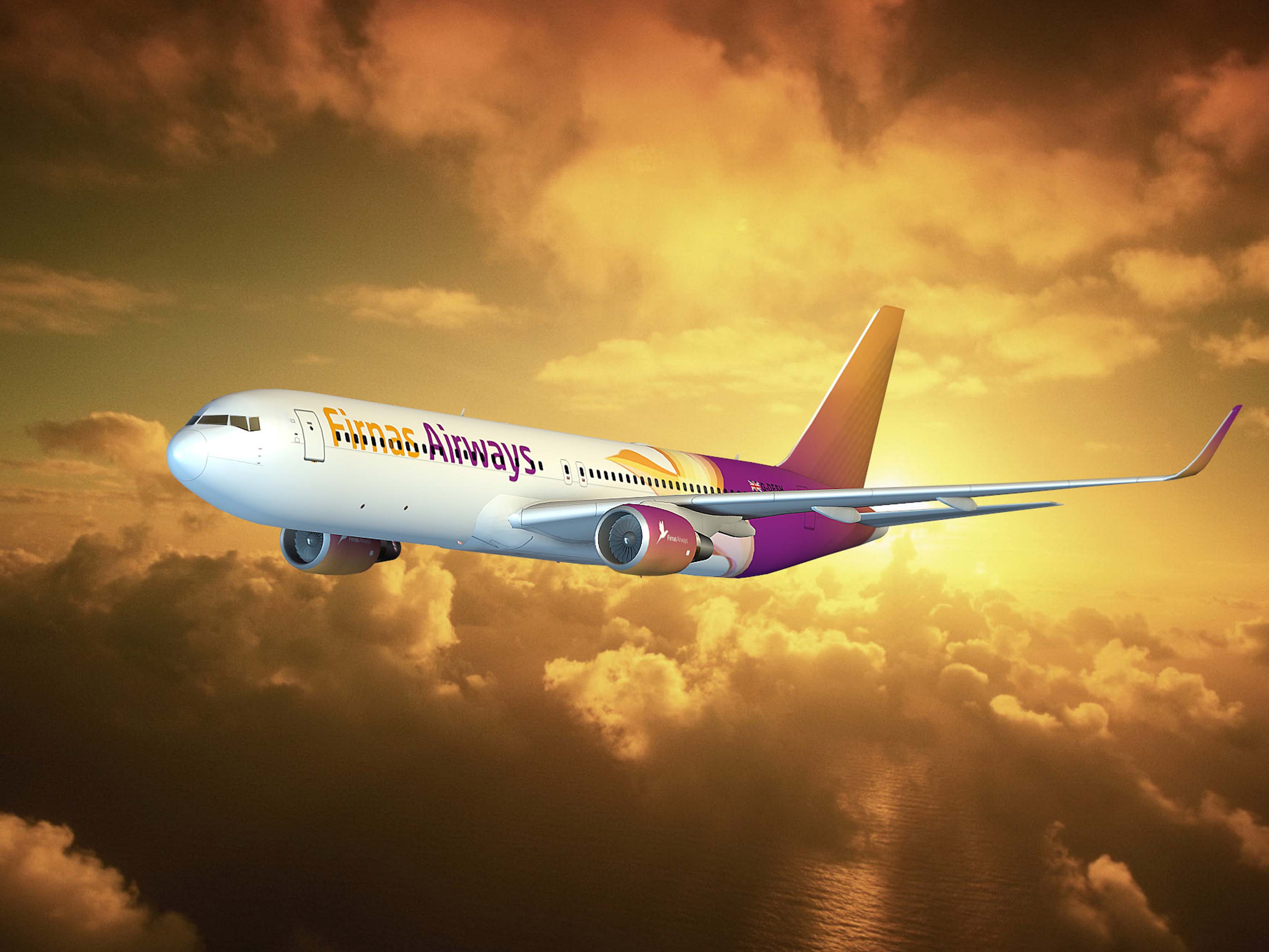New Shariah-compliant airlines should watch for competition on horizon
Photo: UK-based Firnas Airways claims to be Shariah-compliant / Promotional material from Firnas Airways
As tourism agencies and hotels in holiday destination cities scramble to capture the burgeoning Muslim travel market with specialized services, some startup air carriers have joined the fray with what they describe as Shariah-compliant air travel.
Malaysia’s Rayani Air and UK-based Firnas Airways are advertising their airlines as Shariah-compliant. It’s a niche service offered in an effort to capture a portion of the highly competitive $145 billion Muslim travel market in which many airlines already offer halal food on flights. Much of that travel is to Singapore, Thailand and the UK, the top three non-Islamic destinations for Muslim travelers, according to halal travel consultants CrescentRating.
Shariah-compliant airlines offer benefits to Muslim travelers several steps beyond typical halal services, which are usually limited to serving halal food.
Rayani and Firnas announce prayer calls, recite supplications before takeoff and require Muslim female flight attendants to wear the hijab. National air carries in conservative Muslim countries like Iran, Saudi Arabia and Brunei already provide such benefits.
COMPETITION
But airlines considering Shariah-compliant travel have an uphill battle to maintain a sustainable business model. The majority of tourists tend to look for the lowest airfares balanced with a level of service that satisfy their needs, according to travel industry insiders.
Airlines touting Shariah service as their primary attraction face competition that more or less is already sensitive to passengers’ religious needs.
“I can’t see much in Shariah compliance,” said John Goodman, president of Ogilvy Noor, an Islamic branding consulting agency that advises companies on how to reach Muslim consumers. “Most airlines offer halal food and cater to a Muslim trade, and it’s very difficult to go beyond that without alienating non-Muslims.”
Goodman said most international airlines address Muslim passengers’ needs. “Western companies do it well,” he said.
INCLUSIVITY
Li Guen Phua, the marketing communications lead at SimpliFlying, a Singapore-based aviation consulting agency, said Shariah-compliant services are just another way for airlines to target a specific group of travelers. But she also cautioned against alienating non-Muslim consumers.
“It is upon the airlines to clarify their position and keep seeking understanding from non-Muslim passengers,” said Li. “It is recommended that airlines like Rayani and Firnas anticipate the types of inconveniences that will arise for non-Muslim passengers and prepare alternatives.”
Jaafar Zamhari, managing director of Rayani, emphasized in December in his announcement of the founding of the airline that routes would not be limited to Islamic destinations and Rayani is “open to all races and religions.”
STANDARDS OF SERVICE, CONVENIENCE
Fazal Bahardeen, CEO of CrescentRating and HalalTrip.com, says international airlines based in Muslim countries meet passengers’ expectations.
“For me, it’s the standard of service,” Bahardeen said. “I prefer to fly Qatar [Airways] because I don’t have to make a request for a special [halal] meal. If I am flying somewhere, I prefer to transfer in Doha because everything in the airport is halal and I can do my prayers. It’s convenient.”
For many Muslim passengers, that standard means no alcohol on flights or even having to sit next to a passenger drinking alcohol. Bahardeen says there may be a day when airlines may provide alcohol-free flights much like when they banned onboard smoking in the late 1980s.
Specialized services can become more complicated on larger airlines, especially when underlined by religious considerations, according to Li. She noted that alternatives could include offering religiously sensitive courtesies to a section of the cabin instead of the entire aircraft.
“Ultimately, a business is run based on the bottom line,” she said. “If an airline discovers a niche that it can serve profitably and is aligned to its branding, there is no reason to not offer specialized services.”
© SalaamGateway.com 2016

Rob L. Wagner